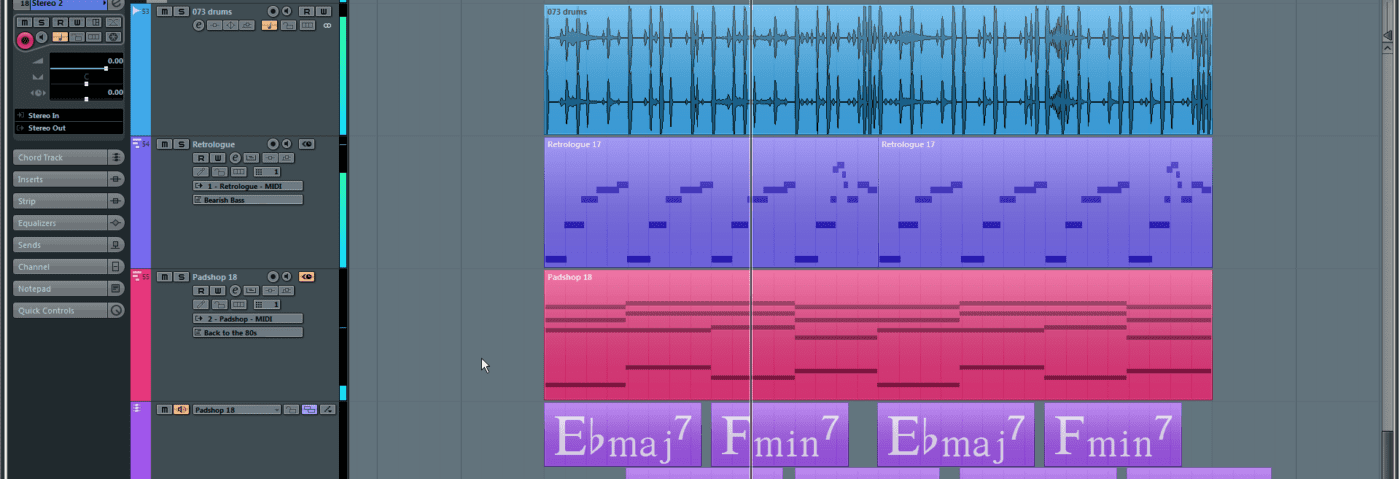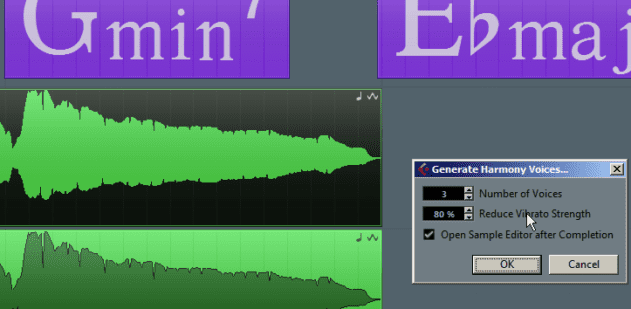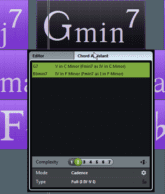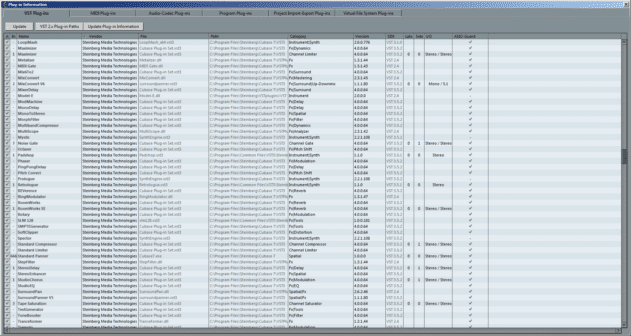Vocal Chords
This update sees the arrival of a new track type in the guise of the Chord Track, which in fact is just one part of the new chord functions in C7. These link the Chord Track to individual MIDI tracks and editors (including the Score Editor) and allow you to analyse, edit and create sophisticated chord sequences or harmonies. Although in some ways designed to help the composition process, some small amount of music theory certainly helps here, even if just to understand some of the language used.
Audio Player Audio Player Audio PlayerI did like Chord Assistant, which helps Cubase to automatically generate ‘official’ chord information from musical events already in place. This can then be fed into the other editors to allow you to correctly harmonise existing material (providing information about what notes will actually fit). In fact, the Sample Editor now provides automatic harmonisation of audio using VariAudio 2.0. It’s clear that the automatically generated harmonies from Chord Track aren’t completely accurate, but they’re certainly good in places. With a little perseverance, this could be a great writing tool even within the context of dance music production.
Audio Player Audio PlayerKeeping Guard
One particularly interesting new innovation in Cubase 7 (which has far greater importance than its half page in the manual would suggest) is the ASIO-Guard feature. Enabled on a per-plugin basis, it pre-processes any audio channels that do not have to be processed in real time, much like a selective variable audio buffer. It aims to help avoid dropouts caused by CPU load spikes, which in turn should help you work at lower buffer sizes, reducing latency. There are some restrictions on the types of plugins with which it will work, though on the whole it seems effective.
Another boon is ASIO Delay Compensation for MIDI and VSTi tracks that helps line up MIDI events correctly when recording – something especially noticeable with larger buffer sizes. It’s not especially glamorous, but it is very useful.



